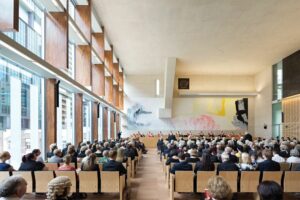The Role of the Appellant Court in Family Law – Australia
The High Court has reiterated many times that orders made in the exercise of a judicial discretion under the Family Law Act as to the alteration of property interests can only be set aside on a strictly limited basis in accordance with the principles in House v The King (1936) 55 CLR 499 (“House”)
It is not enough that the judges composing the appellate court consider that, if they had been in the position of the primary judge, they would have taken a different course. It must appear that some error has been made in exercising the discretion.
 If the judge acts upon a wrong principle, if he allows extraneous or irrelevant matters to guide or affect him, if he mistakes the facts if he does not take into account some material consideration, then his determination should be reviewed and the appellate court may exercise its own discretion in substitution for his if it has the materials for doing so.
If the judge acts upon a wrong principle, if he allows extraneous or irrelevant matters to guide or affect him, if he mistakes the facts if he does not take into account some material consideration, then his determination should be reviewed and the appellate court may exercise its own discretion in substitution for his if it has the materials for doing so.
It may not appear how the primary judge has reached the result embodied in his order, but, if upon the facts it is unreasonable or plainly unjust, the appellate court may infer that in some way there has been a failure properly to exercise the discretion which the law reposes in the court of first instance. In such a case, although the nature of the error may not be discoverable, the exercise of discretion is reviewed on the ground that a substantial wrong has in fact occurred.
What is the relevance of “add backs” in Family Law
Add backs- Where property, monies, financial resources are added back into the relationship assets.
Addbacks fall into “three clear categories”:
- where the parties have expended money on legal fees,
- where there has been a premature distribution of matrimonial assets, and
- “waste” or wanton, negligent, or reckless dissipation of assets. This latter category indicates that the nature of the expenditure of post-separation or premature distributions can be relevant to the exercise of discretion to add back
Adding back is “the exception rather than the rule”. Reasonably incurred expenditure does not usually come within accepted categories of addbacks.
Adding back” is a discretionary exercise. When the discretion is exercised in favour of adding back, it reflects a decision that, exceptionally, in the particular circumstances of a case, justice and equity requires it.
In cases that are not “exceptional” justice and equity can be achieved, not by adding back, but by the exercise of a different discretion – usually by taking up the same as a relevant s 75(2) (Family Law Act) factor. These factors are important for the court’s consideration and assessment of what each party’s ‘future needs’ are likely to be.
The authorities establish four relevant propositions:
First, adding back property which has been distributed and spent is discretionary, and reflects an exceptional exercise of the discretion as an “accounting” or “balance sheet” exercise for the purposes of s 79(2) (Family Law Act) to achieve justice and equity between the parties.
Secondly, the nature of the expenditure reflected in add backs is relevant, and reasonably incurred expenditure does not usually come within accepted categories of addback.
Thirdly, the decision in Stanford, followed by Bevan, does not necessarily require the conclusion that adding back notional property is per se an error, but proper consideration must be given to existing interests in property.
Fourthly, in cases which are not exceptional, expended interim distributions can be taken up under s 75(2) rather than as part of the balance sheet exercise.
The latter is “a course which is, perhaps, technically more correct” than adding back to the list of existing interests in property.
The essence of a claim for addbacks is that the asserted sum/s should be added to the value of the existing property interests of the parties and, subsequent to the assessment of contributions, credited to the spending party as part of the value of their assessed entitlements.
 Adding back does not seek to create property interests that do not exist. Rather, doing so emphasises that satisfying the respective requirements of ss 79(2) and (4) of the Act to do justice and equity can require an “accounting” or “balance sheet” exercise for the purposes of s 79(2) and (4), so as to include the value of the dissipated property or expended sums within the total value of the parties’ existing interests in property, and to credit the value of same against the assessed entitlement of the dissipating or spending party.
Adding back does not seek to create property interests that do not exist. Rather, doing so emphasises that satisfying the respective requirements of ss 79(2) and (4) of the Act to do justice and equity can require an “accounting” or “balance sheet” exercise for the purposes of s 79(2) and (4), so as to include the value of the dissipated property or expended sums within the total value of the parties’ existing interests in property, and to credit the value of same against the assessed entitlement of the dissipating or spending party.
Addbacks encompass four relevant propositions:
First, adding back property which has been distributed and spent is discretionary, and reflects an exceptional exercise of the discretion as an “accounting” or “balance sheet” exercise for the purposes of ss 79(2) and (4) to achieve justice and equity between the parties.
Secondly, the nature of the expenditure reflected in add backs is relevant, and reasonably incurred expenditure does not usually come within accepted categories of addback.
Thirdly, proper consideration must be given to existing interests in property.
Fourthly, in cases which are not exceptional, expended interim distributions can be taken up under s 75(2) rather than as part of the balance sheet exercise.
If we can be of assistance, please contact our experienced Brisbane family lawyers team at James Noble Law today for expert advice from experienced Brisbane solicitors for a FREE 20-minute consultation.
We have Qualified and Experienced Family Lawyers Brisbane at James Noble Law.

You may also like to know about
- Learn about Family Court Portal.
- Family law Brisbane solicitors.
- How to prepare family reports?
- Learn about the family Law act 1975.
- Spousal maintenance qld, Brisbane, Australia.
- What is section 61da(1) | Criminal law in Family Law proceedings?

Comments
Post a Comment